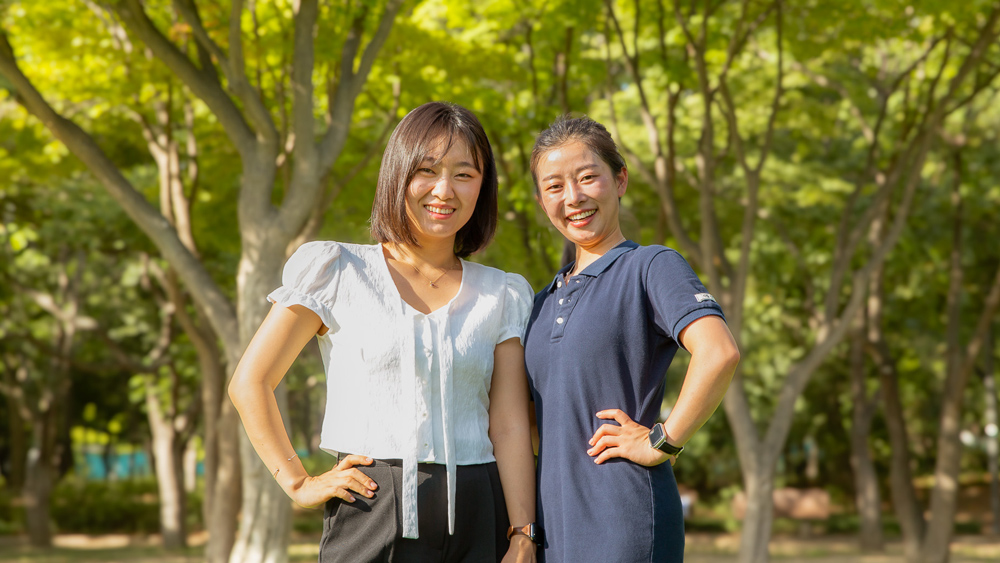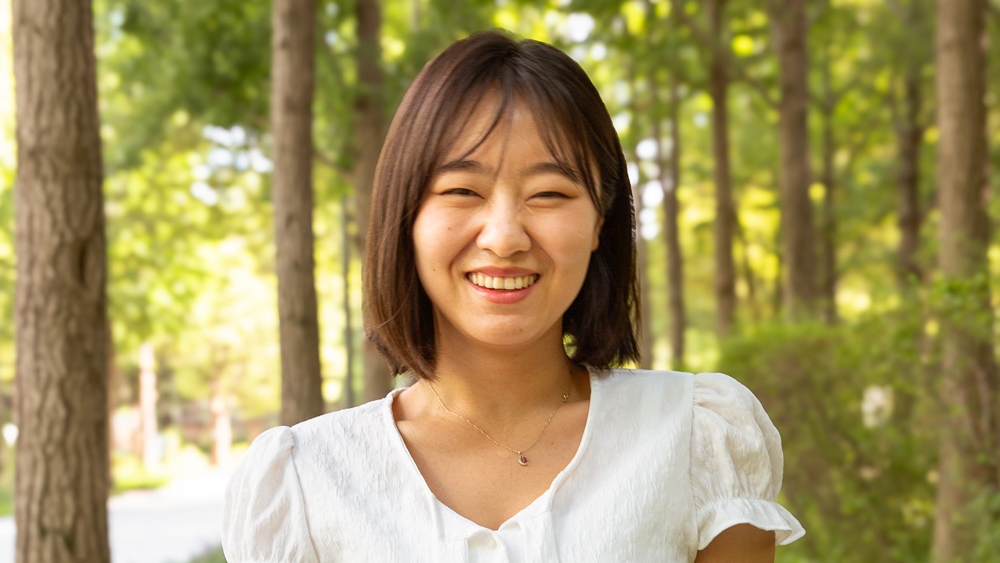The Red Box: Misunderstandings and Stereotypes about North Koreans
For North Korean refugees, resettling in a new society comes with many challenges. One of these challenges is overcoming the stereotypes about North Korea and the North Korean people.
In the latest episode of The Red Box, our North Korean friends and 2019 LiNK Advocacy Fellows talk about the struggle of of facing stereotypes after resettling in South Korea.
Watch as Jeongyol, Joy, Dasom, and Ilhyeok answer your questions in The Red Box Series!
Read the transcript of this episode below!
All: Welcome to the Red Box!
Jeongyol:
Are there any misunderstandings about the North Korean people that make you feel uncomfortable?
Ilhyeok: Misunderstandings?
Joy: When I first came to South Korea, was working part-time at a convenience store. I was still very young and had a very heavy North Korean accent.
In South Korea, when a customer enters the part-time employees don't really greet them. But I used to greet the customers standing and say "Welcome!" so people would ask me where I'm from.
I'd tell them that I'm from North Korea. They'd say "oh really?" After they get their stuff and put them on the counter, they'd asked me if I ever had jjajangmyun or pork in North Korea? They'd ask me these types of questions. Some people ask because they don't know but sometimes they ask questions that insinuate that we were all so poor in North Korea. Not everyone in North Korea is like that. There's people who live well too
Jeongyol: If someone asked me that, I’d tell them I might've lived a wealthier life there [in North Korea].
Joy: So those types of questions made me feel a little uncomfortable.
Jeongyol: A lot of people think like that.
Dasom: People think that all North Koreans are poor, ignorant, and uneducated. People have told me that even though I must have starved and lived poorly in North Korea, I don't look the part.
Maybe some people did or didn't have enough food to eat. There are poor people and there are rich people too. Every country is the same — it’s the same in South Korea too. There are rich, poor, and homeless people in South Korea too. I don't think it's right to judge someone like that. It made me feel very uncomfortable
Jeongyol: When I was in high school, there was a soccer match between North Korea and South Korea. But all of a sudden they asked me which team I'm cheering for. So I was startled by the question.
Should I say I'm cheering for North Korea or South Korea? What's my identity?
Even though I'm living in South Korea as a South Korean citizen, they didn't recognize the fact that I'm also South Korean. That we were the same people.
So at the time I answered, "I'm not cheering for either team. I don't care who wins. I’m just watching the game for fun.” It went over smoothly but afterward I kept thinking about it. But now that I think about it…It wasn't my choice to be born in North Korea.
Dasom: Right
Jeongyol: I could've been born in the U.S. but somehow I was born in North Korea.
Anyone could've been born in North Korea.
It's not anyone's fault. So from that moment on, I became confident. I am just who I am.
Ilhyeok: I have this older friend from China. During holidays like in January, he'd always ask me if I am visiting my hometown. Whenever he asks me that question, I want to be able to tell him that I'm am going [home] but I can't because I can't go back so I just don’t answer him. When he asked me if I'm going home, I just wished that I could return home one day.
It's heartbreaking not being able to go home.
During Chuseok and New Year's Day, those two holidays are when I miss home the most.
Joy: One uncomfortable question for me was when I was in school or met people was when they asked me why there's no riot or uprising in North Korea. Sometimes people ask because they really don't know but sometimes they insinuate that we're cowards.
And with that viewpoint, they ask why we won't revolt against the government. I try to explain but they still insist and say, ”But you guys still should have done something.” That makes me a little sad.
In North Korea, there's a system of monitoring each other. So if one person says something bad, they'd get reported right away and taken.
Jeongyol: In South Korea there were a lot of civil riots so they ask why we didn't do anything in North Korea.
Joy: But it's a very different situation.
Jeongyol: The system doesn't allow it.
Dasom:
What also made me uncomfortable was if I did something wrong, people would blame it because I'm North Korean.
They say things like, “It's because she's North Korean.” That made me upset. Other people say bad things and make mistakes too. But because of one mistake they say all North Koreans are like that and that I wouldn't know things or be able to do things because I'm from North Korea.
I hated hearing that so I wouldn't tell anyone that I was from North Korea.
North Korean Fellows in the United States: Meet the Class of 2025

Please join us in welcoming Hannah and Rose, LiNK’s 2025 Advocacy Fellows!
The Advocacy Fellows program partners with young North Korean defectors to build their skills as effective leaders, storytellers, and agents of change for this issue. Hannah and Rose spent the last month training and preparing with our team in South Korea, and will now be traveling across the US to share their stories!
Join us at a Fellows speaking event near you!
Dallas, TX
September 9th, 6pm
Southern Methodist University | Dallas Hall Room 306 (McCord Auditorium)
3225 University Blvd, Dallas TX 75205
RSVP Here
Guest parking information here
Waco, TX
September 11th, 6pm
Baylor University, Foster Campus | Room 240
1621 S 3rd St, Waco, TX 76706
RSVP Here
Parking: 1521 S Fourth St. Waco,TX 76706 (Google maps or Apple Maps)
Madison, WI
September 16th, 12pm
UW-Madison | Lubar Commons (Room 7200)
975 Bascom Mall, Madison, WI 53706
RSVP here
Evanston, IL
September 20th, 5pm
Northwestern University | Harris Hall 107
1881 Sheridan Rd, Evanston, IL 60201
RSVP Here
Palo Alto, CA
September 28th, 1:20pm
True North Church
655 Arastradero Road, Palo Alto, CA 94306
RSVP Here
Berkeley, CA
September 29th, 6pm
UC Berkeley | Stephens Lounge at the MLK Student Union
2495 Bancroft Way, Berkeley, CA 94720
Parking: Lower Sproul Garage
RSVP Here
Washington, D.C.
October 8th, 1pm ET
The Stimson Center
1211 Connecticut Avenue Northwest Washington, DC 20036
RSVP Here
*Online livestream also available: RSVP Here
Washington, D.C
October 9th, 10:30am
ET Hudson Institute
1201 Pennsylvania Ave N.W. Suite 400 Washington, DC 20004
RSVP Here
Philadelphia, PA
October 13th, 5:30pm
University of Pennsylvania
3401 Walnut Street, Philadelphia, PA 19104
RSVP Here
New York, NY
October 16th, 2025, 12 PM
The Korea Society
350 Madison Avenue, 24th Floor
New York, NY 10017
RSVP here
Los Angeles, CA
October 21st, 7:30pm
UCLA
Haines Hall Room A2 Portola Plaza, Los Angeles, CA 90095
Parking available in UCLA Parking Structure 2
RSVP here
Additional details and timely updates will be sent to RSVP’ed guests via email.

Hannah is a 4th year student at Hongik University studying Electrical and Electronic Engineering. While participating in LiNK’s Changemaker Scholarship Program, she worked on developing devices and strategies that increase information access for people inside North Korea. Her goal as an Advocacy Fellow is to grow as a leader and communicator, and facilitate more collaborative work on this issue.

Rose graduated from Hongik University’s Department of Architecture. For her final project, she designed a memorial to honor North Korean human rights and provide comfort to defectors who had to leave their homeland. She drew inspiration from the Holocaust and 9/11 Memorials in the US, and was deeply moved by how such spaces contribute to healing and progress. As an Advocacy Fellow, Rose hopes to continue finding her identity and increase interest in this issue.




